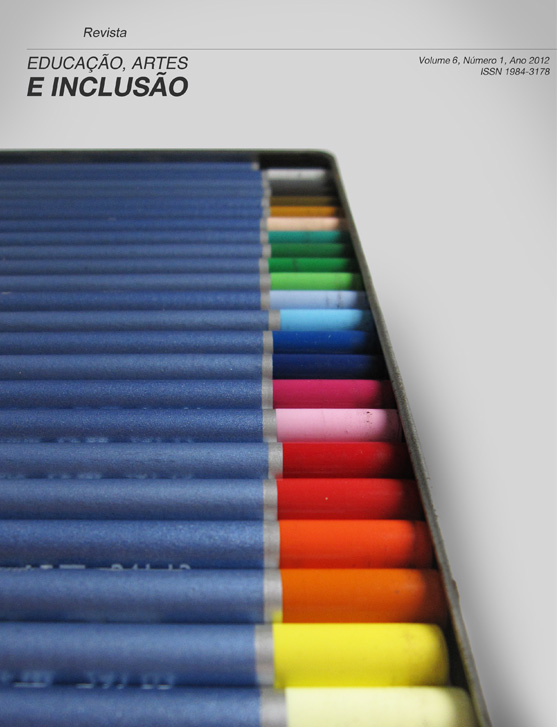O ENSINO DE ARTES NAS ONG’s: FATORES HISTÓRICOS QUE
Abstract
O presente artigo tem por finalidade fazer uma revisão bibliográfica do ensino de Artes nas Organizações Não-Governamentais – ONGs. Pretende-se compreender o modelo educacional empregrado nesses espaços educacionais, a construção das parcerias locais e quais fatores históricos possiblitaram essa realidade. Para tanto, é necessário conhecer por meio da produção da bibliografia publicada a situação dos profissionais de Artes que atuam nessas instituições, identificando a sua formação inicial. Sendo assim, a dinâmica pedagógica no cotidiando das ONGs, o ensino não-formal como abordagem metodológica e conceitual, as múltiplas maneiras de promover a formação educacional em Artes na atualidade direcionadas ao desenvolvimento e formação de sujeitos em comunidades populares vem fortalecer o ideal proposto dos movimentos sociais para uma educação acessivel à todos.Downloads
Downloads
Published
How to Cite
Issue
Section
License
Copyright Statement
The Educação, Artes e Inclusão is a journal that follows the Free Access Policy. The articles published by the journal are free of charge, intended for educational and non-commercial applications. The articles whose authors are identified represent the expression from the point of view of their authors and not the official position of the Educação, Artes e Inclusão Journal or the Educação, Artes e Inclusão Research Group.
Authors who publish in this journal agree to the following terms:
(A) Authors retain the copyright and grant the journal the right of first publication, with the work simultaneously licensed under the Creative Commons Attribution License which allows the sharing of the work with acknowledgment of authorship and initial publication in this magazine.
(B) Authors are authorized to take additional contracts separately, for non-exclusive distribution of the version of the work published in this journal (eg publish in institutional repository or as a book chapter), with acknowledgment of authorship and initial publication in this magazine.
(C) This journal provides public access to all of its content, as this allows for greater visibility and scope of published articles and reviews. For more information on this approach, visit the Public Knowledge Project.
This journal is licensed under a Creative Commons Attribution-NonCommercial-ShareAlike 4.0 International License. This license allows others to remix, adapt and create from your work for non-commercial purposes, and although new work must give you due credit and cannot be used for business purposes, users do not have to license such derivative works under the same terms.



